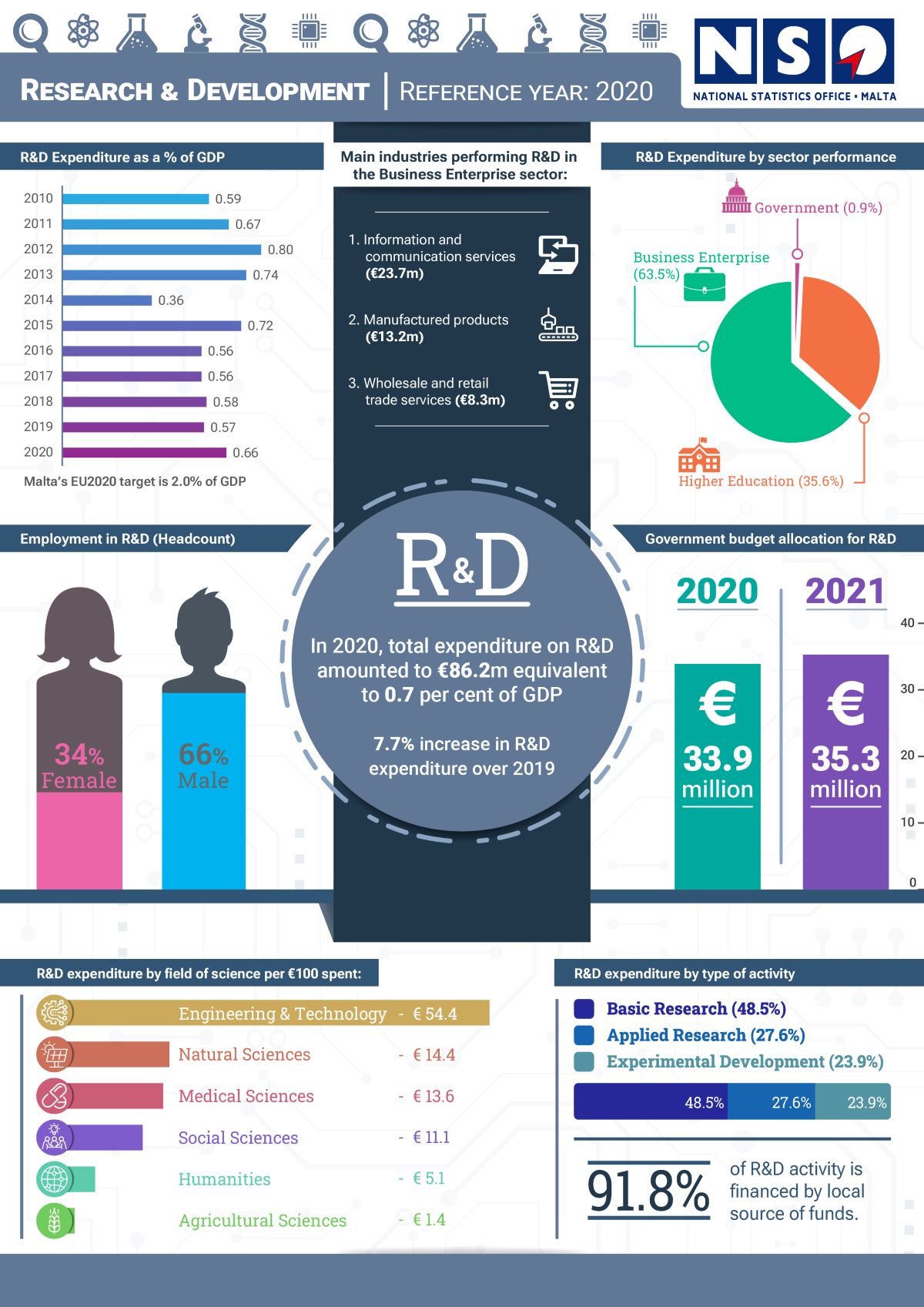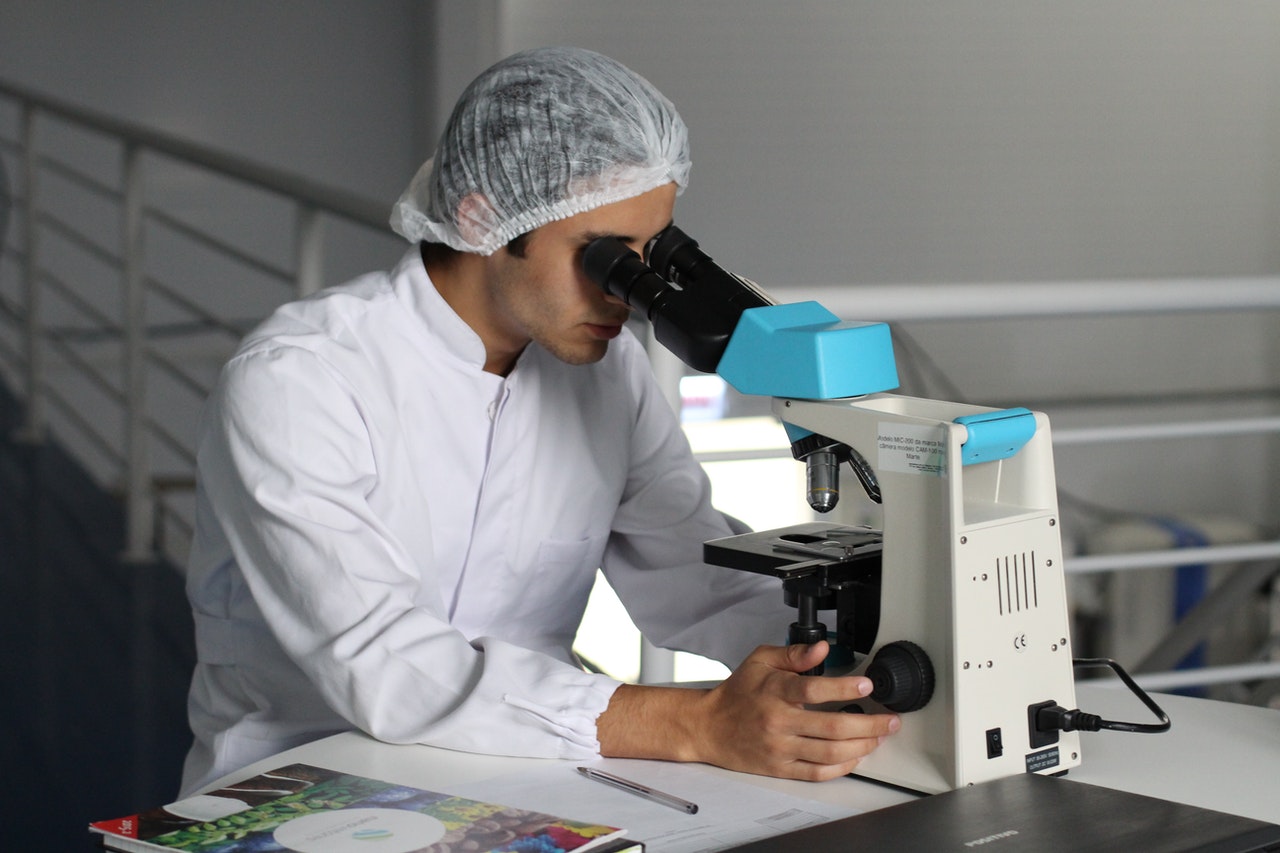Work on research and development (R&D) is growing, with more resources dedicated to the important activity, according to a new report issued by the National Statistics Office, which also reveals that almost 3,000 workers were engaged in in the sector in 2020, with a third (34 per cent) of these being women.
Of the 2,868 employees working on R&D, 1,622 spent a portion of their time such projects, while the remaining 1,246 employees dedicated their entire working time to R&D.
The highest R&D employment was registered in the Higher Education sector, at 1,448 employees, followed by the Business Enterprise sector, with 1,369 employees.
The highest employment was recorded in engineering and technology with 1,045 employees, followed by natural and social sciences, with 637 and 511 employees respectively.
In total, expenditure on R&D amounted to €86.2 million in 2020, or 0.7 per cent of GDP.
This represents an increase of €6.2 million, or 7.7 per cent.

The business enterprise sector contributed 63.5 per cent to total R&D, whereas the higher education and Government sectors contributed 35.6 and 0.9 per cent respectively.
The expenditure was primarily dedicated to basic research, which accounted for 48.5 per cent of total R&D in 2020, followed by applied research (27.6 per cent) and experimental development (23.9 per cent).
In 2020, both the business Enterprise and the higher Education sectors reported an increase in R&D expenditure compared to 2019. The higher R&D expenditure was mainly triggered by higher outlays on recurrent expenditure by the business enterprise sector of €5.8 million, while capital expenditure for this sector decreased by €0.7 million. On the other hand, R&D expenditure by the Government sector remained virtually unchanged.
Labour costs represented 70.8 per cent of total R&D expenditure, followed by other recurrent expenditure (18.3 per cent) and capital expenditure (10.9 per cent).
The highest R&D expenditure in 2020 was recorded in engineering and technology, which accounted for 54.4 per cent of total expenditure, followed by natural sciences (14.4 per cent) and medical sciences (13.6 per cent).
The majority of the R&D activity in engineering and technology and natural sciences was undertaken in the business enterprise sector, whereas research in relation to medical and social sciences was mainly carried out by the higher education sector.
Year-on-year comparisons show that the highest increase was registered in engineering and technology (€11.8 million), followed by social sciences (€1.3 million) and medical sciences (€0.7 million). These increases were partly offset by a decrease of €7.8 million in natural sciences.
Each sector mostly funds its own research, supplemented by foreign funds. R&D in the business enterprise sector is mainly funded by local business enterprise funds, gneral university funds are directed to the higher education sector and direct government funds service the Government sector. Foreign funds for R&D reached €7.1 million, or 8.2 per cent, of total funds.
The Government Budget Allocations for R&D (GBARD) for 2021 amounted to €35.3 million, an increase of €1.5 million when compared to 2020. The highest GBARD outlay was recorded in general advancement of knowledge: R&D financed from general eniversity funds of €29.8 million.
French ATC strike forces Ryanair to cancel over 300 flights, affecting 50,000 passengers
The low-cost carrier is demanding the EU carries out reforms to ensure travel continues undisrupted
Valletta ranks 8th most expensive European capital city to live in – study
While London is the most expensive, Bucharest is the most affordable
KM Malta Airlines cancels flights between Malta and Paris on Thursday due to air traffic control strike
Impacted customers can opt for an alternative flight or apply for a full refund






